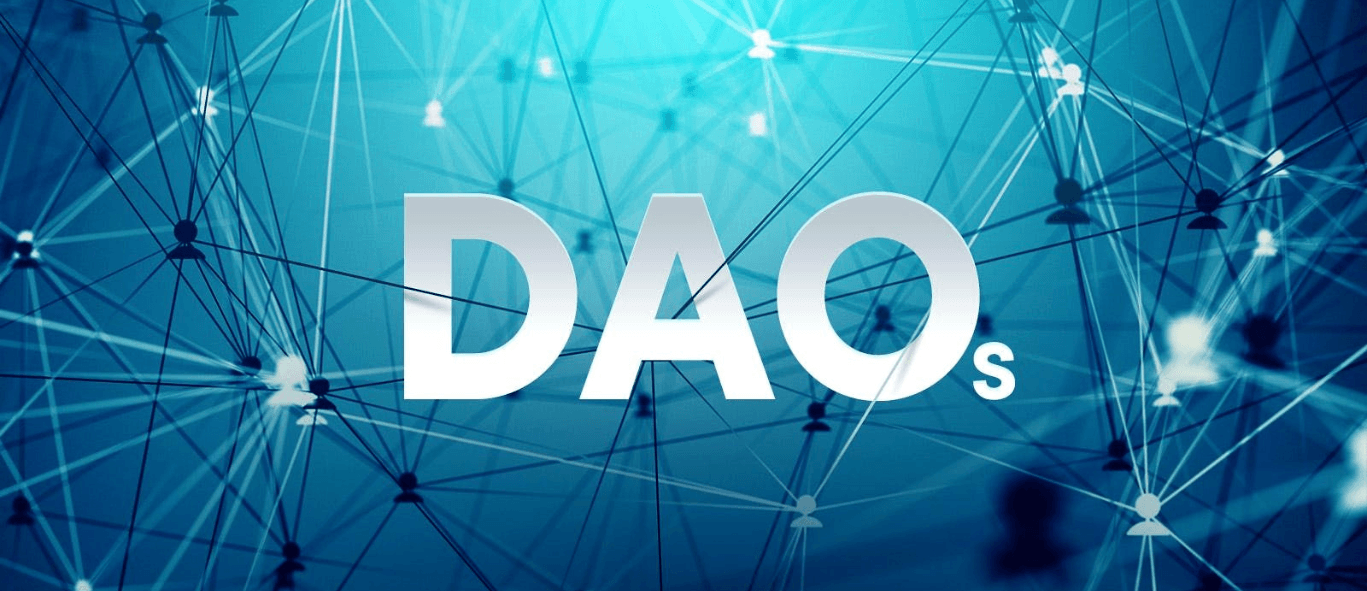
SERIOUS ABOUT BUILDING IN WEB3?
If you're working on something real — let's talk.
Published On Jun 04, 2025
Updated On Jul 14, 2025

Decentralized Autonomous Organizations (DAOs) have moved far beyond experimental status. Today, they are operational, functional, and actively reshaping how communities coordinate, govern, and build digital-first organizations.
From managing billion-dollar treasuries to funding open-source innovation, DAOs are redefining organizational design with programmable governance that removes traditional hierarchies.
As DAOs become foundational to Web3 and beyond, understanding their technical architecture, governance dynamics, and key trends is crucial for anyone building or participating in decentralized ecosystems.
In this blog, we will explore all this along with some use cases of DAOs.
DAOs are organizations governed by rules encoded in smart contracts on a blockchain.
Unlike traditional organizations with hierarchical management and opaque processes, DAOs automate decision-making, fund management, and operational workflows in a transparent, trustless manner.
DAOs are built around the principles of -
To fully understand DAOs, it’s important to see how they differ from traditional centralized organizations.
Unlike corporations or nonprofits that rely on hierarchical management, centralized boards, and opaque processes, DAOs replace these structures with programmable governance.
DAOs offer:
By replacing traditional hierarchies with programmable governance, DAOs enable inclusive, efficient, and global collaboration. This new model transforms how organizations coordinate and make decisions.
At the core of this transformation lies the technology powering DAO i.e. blockchain and smart contracts which automate and secure decentralized governance.
Blockchain infrastructure underpins DAOs by offering decentralized, secure, and transparent systems.
Modern DAOs are increasingly adopting modular smart contract frameworks and standards that allow them to:
Blockchain and smart contracts enable secure, automated DAO governance with flexible, scalable architectures. Governance tokens and voting models then determine how decisions and power are shared.
Equally important to technology are governance tokens and voting models, which shape how decisions are made and how power is shared within DAOs.
Most DAOs use tokens to represent voting power. These tokens may be bought or distributed via initial contributions, airdrops, or earned through participation.
The way votes are cast significantly influences decision-making through:
Tokens and voting shape DAO decisions today. Tomorrow, AI and user-focused improvements will transform how DAOs engage and govern.
Let’s see how.
The DAO landscape is evolving rapidly, driven by innovation that pushes the boundaries of decentralized governance and collaboration.
These emerging trends are reshaping how DAOs operate, making them smarter, more accessible, and easier to deploy at scale.
Below given are some key trends in DAOs:
AI is starting to transform DAO governance in sophisticated ways:
This fusion of AI and blockchain enables DAOs to move beyond manual voting toward a more intelligent, responsive governance model thus reducing friction and improving decision quality.
DAO adoption depends heavily on lowering usability barriers for that they are focusing on:
Improving accessibility ensures DAOs are inclusive, vibrant, and truly community-driven, rather than limited to blockchain experts.
With strong governance and emerging tech, DAOs are making a real impact. Let’s explore key use cases demonstrating their practical power and reach.
Uniswap DAO governs the largest DEX by volume, managing protocol upgrades, fee structures, and grant allocation.
Both DAOs manage upgrades, funding, and security parameters for Ethereum Layer 2 scaling solutions.
From DeFi to public goods funding, DAOs demonstrate tangible impact today. However, the future promises broader adoption and deeper integration of decentralized governance models.
DAOs are evolving into full-stack governance platforms that will redefine organizational collaboration across industries which are:
DAOs have transcended niche experimentation to become the cornerstone of decentralized organizational design powering billions in value and defining new paradigms for collective governance.
By embedding transparency, automation, and community-driven decision-making, DAOs unlock new possibilities for innovation, security, and growth.
Organizations embracing DAO principles today are preparing themselves for a future where trustless, permissionless, and borderless collaboration is the norm.
The journey is complex, but with the right technology and strategic foresight, DAOs will transform how we govern and build together.
At Lampros Tech, we specialize in guiding projects to build and participate in DAOs with expert governance advice and cutting-edge tools.
Ready to tap into the power of decentralized organizations? Visit our website or schedule a call to start your DAO journey today.

A DAO (Decentralized Autonomous Organization) is a blockchain-based entity governed by smart contracts. It automates decision-making, fund management, and operations transparently, enabling community-driven governance without centralized control.

DAOs replace hierarchical management with programmable governance, allowing permissionless participation, codified rules, and seamless global collaboration without geographic or bureaucratic constraints.

DAOs run on blockchain infrastructure using smart contracts that manage membership, proposals, voting, treasury controls, and automated execution, ensuring secure, transparent, and efficient decentralized governance.

Governance tokens represent voting power within DAOs. Various voting models like quadratic voting and vote delegation improve fairness and participation, while on-chain and off-chain voting balance transparency with cost-efficiency.

Key trends include AI integration for proposal analysis and autonomous agents, improved user experience through mobile-first platforms, and DAO-as-a-Service frameworks that simplify DAO creation and management.
Need DAO guidance?
Whether you want to start a project or participate in it. Our experts are here to help.
Let’s Talk